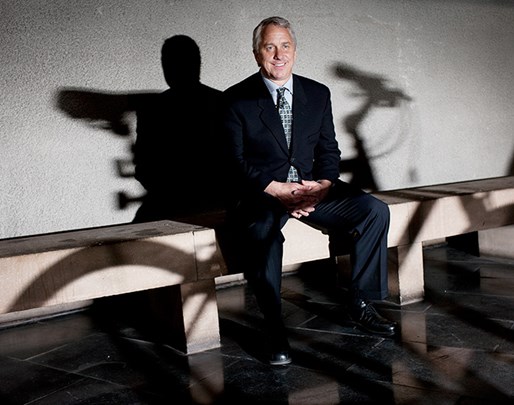“The worst things happen in cycling”

09.06.2009
By Marcus HoyGreg Lemond spoke to Play the Game about the “disease that is killing cycling”. Namely, the use of performance-enhancing drugs. In professional cycling, he said, the worst-case doping scenarios often come true
Lemond, who won the Tour de France in 1986, 1989 and 1990, is the sport’s highest-profile doping critic. In recent years, he has had highly publicized fallouts with Lance Armstrong, Floyd Landis and the Trek cycle manufacturer over his blunt comments. Currently involved in ongoing litigation with Trek, Lemond admitted that he is “in a battle to keep [his] reputation and businesses”.
Although he enjoys a reputation of cycling’s “Mr Clean”, Lemond admitted that it was partly due to luck that he did not use performance-enhancers during his career. “I was fortunate to get into cycling when I did,” he said. “If I had turned professional in 1993 or 1994, I don’t know what I would have done. This system corrupts everyone - even the good people”
Despite much vaunted reforms designed to catch drug cheats, he said, cycling is still on a “slow death march”. Doping remains commonplace, and as a result, there will soon be little money left in the sport. He called for radical solutions to halt the trend, including the criminalisation of doping for riders, coaches and doctors. Cyclists, he pointed out, are often used as ”lab rats” for doctors, and over a hundred have died from doping and related causes.
Lemond also criticized the International Cycling Union (UCI), which, he said, operated a policy of “punishing honesty and rewarding dishonesty” when it came to dope cheats. He advocated an independent drug testing agency, separate from the UCI, to test riders competing in the Tour de France.
Riders who come clean and admit their drug use should be welcomed back into the fold, he said. Bjarne Riis, the 1996 Tour de France winner who gave back his yellow jersey, is a good illustration of someone who should remain connected to the sport, he added.
However, citing Floyd Landis and Tyler Hamilton as prime examples, he stated that he had little sympathy for “those who refuse to admit to their guilt, despite mounting evidence”.
“I know the sport, and I doubt that there is anyone who has wrongly tested positive when they are negative” he said. “There could be, but I doubt it. Standards must be really high to ensure that athletes are not wrongly accused”.
Lemond also criticized the high-profile campaigns waged by certain cyclists to clear their names, despite what he saw as overwhelming circumstantial evidence pointing to their guilt.
“When you have enough circumstantial evidence, and enough witnesses, you don’t need a smoking gun”, he said
Unless another major initiative is announced to clean up the sport, Lemond said, he has opted to walk away from professional cycling. “I still enjoy it as recreation, but as regards following it at competition level, I’m done” he said. “I would not like my kids to go into professional cycling today”.
Finally, Lemond was asked if he thought Lance Armstrong would ever admit to taking performance-enhancing drugs.
“No way”. Lemond concluded. “That guy has got no conscience”
-
Timo .,
24.07.2010 11:07:
Greg - go foreward!!
-
eric .,
12.06.2009 08:55:
Greg, ignore the idiotic comments. It's all about trust and integrity which you've always shown. Lance doesn't compare.
-
Andrew Morgan,
Houston TX,
11.06.2009 08:54:
Greg, it's great to see you represent the sport as it once was and as I hope it will be in the future. Don't be deterred by the nay-sayers, and count on the support of all fair-minded cycling aficionados; drug-free is the future.
-
adam .,
DC,
11.06.2009 08:50:
lance has no conscience? give me a break!
-
Bruce Haas,
USA,
11.06.2009 08:48:
Lemond, you're an idiot, give it up dude. I thought you were done with the sport? Did they pay to do this interview too? What ever happened to your mitochondria myopathy you said you that caused the end of your career? Greg you lost all the respect you once had!





